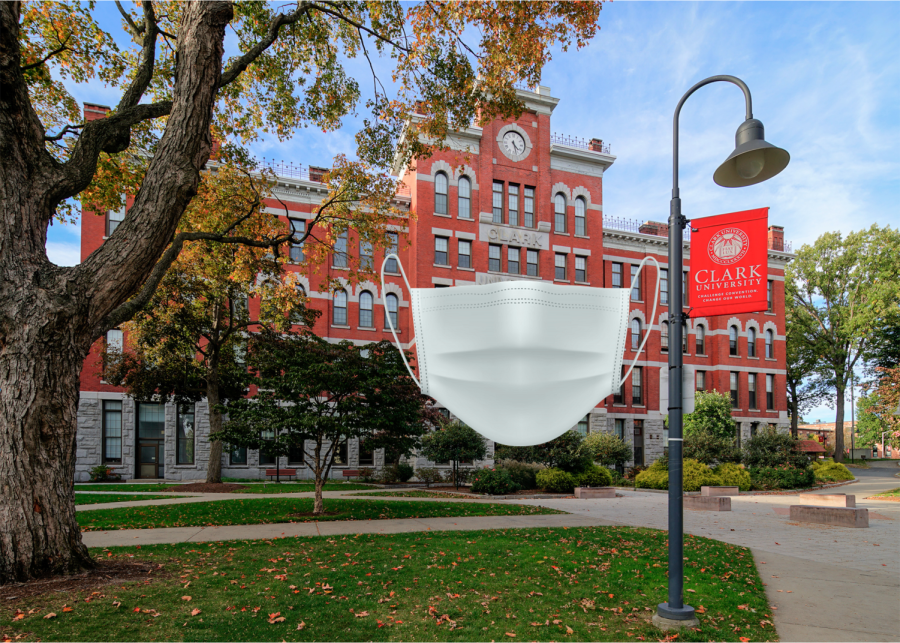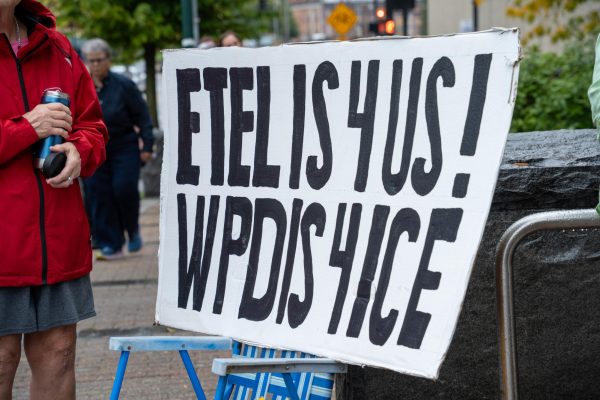The State of COVID-19 at Clark
Clark’s current COVID procedures are putting students in a position where they can jeopardize their own health or put others at risk by leaving their isolation spaces due to a lack of support.
As the world enters into its third year of the pandemic, Clark University students continue to feel the impact. It seems everyone knows someone who is sick. Despite students’ concerns, Clark has gotten rid of most of its regulations. Without mass testing, case tracking, or clear procedure outlines, students who test positive are not given clear instruction on how to isolate. I talked with several students who have dealt with the university’s policies and the impact on their college experience.
Clark is struggling with a housing shortage due to a freshman class of 820, the largest in Clark history. Despite the large freshman class, no expansion of dormitories have been made. This issue bleeds into Clark’s COVID-19 policy where the lack of isolation housing becomes prominent.
Josh Lechtzin, a freshman from New York whose roommate got COVID at the beginning of the fall 2022 semester said, “It really happened very quickly so I just had to figure something out so that I didn’t have to sleep in the room with him. So I went to the common room on the first floor of Wright Hall with the pool tables and slept on the couch in there. And then for the rest of about a week I had to find somewhere else to sleep.”
Josh is also a forced triple survivor, which is a dorming situation when 3 people are put into a room meant for two. Josh’s other roommate was able to go home since he lives a short drive away. However, Clark allowed Josh to go without housing for 5 days. Clark’s Department of Student Success are surprised when people have nowhere to go, despite the existence of forced triples.
Clark’s current policy depends on its students being able to go home and isolate. However, this method is not a catchall. Jack Keane, a sophomore from Cambridge, MA did not go home because he would have taken the train where he would expose more people. Fortunately, he and his roommate tested positive together.
One problem that arose is food. Jack, talking about his friends who had COVID the week prior said, “One of my friends who had tested positive 5 days before me I think tried every day. And maybe they got a response at one point, but it was very delayed. They got food hours after or no food at all.”
“My roommate called the meal number 3 or 4 times and got no response.”
Provided the pair had few options, they relied on friends for food. This is the case for many students, but what if someone did not have a strong local support system? Vulnerable students are left behind.
The COVID-19 policy changed drastically from last year. Without a COVID case tracker, the virus for some has become out of sight out of mind. Many of us know someone with COVID, but are campus cases really rising?
The lack of communication from the administration also leaves students unsure of what steps to take if they test positive, but this was not always the case. Everett Beals, a junior from Kennebunk, ME talked about his experience at Clark in fall 2020.
Everett’s roommate tested positive in fall of 2020. Both were moved into isolation housing. Everett recounts the steps of what happened when you are a close contact.
“I think they would use a Clark Ride van, it would kind of come around and get you and you’d be escorted by a university police officer. Who would take you to this separate sort of tent outside Kneller where they had an individual testing station for people who were positive or suspected positive.”
One thing to note is that Everett did not test positive but was still brought to isolation. His close contact was enough for Clark. After being tested, you were moved to isolation housing.
“…And then I got driven across campus over to Maywood St. and what used to be the Health Center building now…I stayed there for two weeks.”
Compared to the Clark current policy, this seems extreme. It proves Clark is capable of controlling the spread. A return to some old policies would be beneficial to the student body. The current policies are irresponsible and put the campus and the wider community at risk.
Here are suggestions for Clark: bring back the COVID-19 tracker to monitor cases and keep students informed, Streamline a functioning meal delivery system for isolating students, Bring back campus wide testing, Make space for quarantine housing,
In the two weeks writing this article, I was exposed to COVID-19 on three separate occasions, all by different students.


